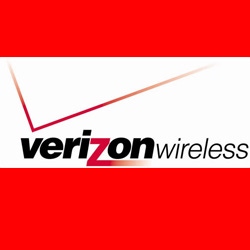The US Department of Justice has given qualified approval to the US operator Verizon’s plan to purchase wireless spectrum holdings from the four largest US cable operators, Comcast, Time Warner Cable, Bright House Networks and Cox Communications. But agreements between Verizon and the cable operators to offer one another’s services must change, the DoJ said, because the plan as hatched “would have harmed competition by diminishing the companies’ incentive to compete."
August 17, 2012

The US Department of Justice has given qualified approval to US operator Verizon’s plan to purchase wireless spectrum holdings from the four largest US cable operators, Comcast, Time Warner Cable, Bright House Networks and Cox Communications. But agreements between Verizon and the cable operators to offer one another’s services must change, the DoJ said, because the plan as hatched “would have harmed competition by diminishing the companies’ incentive to compete.”
Verizon is set to spend around $3.6bn on some 20MHz of spectrum, having struck a deal with the cable operators at the end of 2011. That agreement set out conditions under which the cable companies would be able to sell Verizon Wireless services on a wholesale basis, with Verizon reselling the cable operators’ services. The companies also pledged to establish a research JV aimed at the “development of technology to better integrate wireline and wireless products and services.”
It is these elements of the deal that the DoJ insists must change. It voiced concerns that the cable operators’ services compete directly with Verizon’s own fibre offering (FiOS) in a number of markets in the US and that, should the agreement go unaltered, Verizon would not be motivated to compete effectively with the cable operators in those markets.
“The proposed settlement forbids Verizon Wireless from selling cable company products in FiOS areas and removes contractual restrictions on Verizon Wireless’s ability to sell FiOS, ensuring that Verizon’s incentives to compete aggressively against the cable companies remain unchanged,” DoJ said in a statement. It also said that the proposed JV must be limited in duration, “ensuring that the agreements will not dampen the companies’ incentives to compete against one another going forward.”
The DoJ also approved Verizon’s plan to sell on a significant portion of spectrum to wireless competitor T-Mobile USA. T-Mobile had originally opposed the deal between Verizon and the cable operators, but a separate agreement was announced in June this year that saw the German-owned operator pacified by the prospect of bolstering its own spectrum portfolio.
The deal must also be signed off by the FCC.
DoJ outlined the following additional caveats to its approval:
Verizon retains the ability to sell bundles of services that include DSL, Verizon Wireless and the video services of a direct broadcast satellite company (i.e., DirecTV or Dish Network);
After five years, the cable companies are no longer barred from selling the wireless services of Verizon Wireless’s competitors, and may partner with other wireless providers;
The cable companies can elect to resell Verizon Wireless services using their own brand at any time as provided for under the amended agreements; and
Upon dissolution of the technology joint venture, all members receive a non-exclusive license to all the joint venture’s technology, and each may then choose to sublicense to other competitors.
About the Author(s)
You May Also Like








.png?width=300&auto=webp&quality=80&disable=upscale)


_1.jpg?width=300&auto=webp&quality=80&disable=upscale)


.png?width=800&auto=webp&quality=80&disable=upscale)